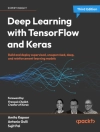Database security is one of the classical topics in the research of information system security. Ever since the early years of database management systems, a great deal of research activity has been conducted. Fruitful results have been produced, many of which are widely adopted in commercial and military database management systems. In recent years, the research scope of database security has been greatly expanded due to the rapid development of the global internetworked infrastructure. Databases are no longer stand-alone systems that are only accessible to internal users of – ganizations. Instead, allowing selective access from different security domains has become a must for many business practices. Many of the assumptions and problems in traditional databases need to be revisited and readdressed in decentralized en- ronments. Further, the Internet and the Web offer means for collecting and sharing data with unprecedented flexibility and convenience. New data services are eme- ing every day, which also bring new challenges to protect of data security. We have witnessed many exciting research works toward identifying and addressing such new challenges. We feel it is necessary to summarize and systematically present works in these new areas to researchers. This book presents a collection of essays, covering a wide range of today’s active areas closely related to database security organized as follows. In Part I, We review classical work in database security, and report their recent advances and necessary extensions.
Tabela de Conteúdo
Foundation.- Basic Security Concepts.- Access Control Policies and Languages in Open Environments.- Trusted Recovery.- Access Control for Semi-Structured Data.- Access Control Policy Models for XML.- Optimizing Tree Pattern Queries over Secure XML Databases.- Distributed Trust Management.- Rule-based Policy Specification.- Automated Trust Negotiation in Open Systems.- Building Trust and Security in Peer-to-Peer Systems.- Privacy in Cross-Domain Information Sharing.- Microdata Protection.- ?-Anonymity.- Preserving Privacy in On-line Analytical Processing Data Cubes.- Security in Emerging Data Services.- Search on Encrypted Data.- Rights Assessment for Relational Data.












